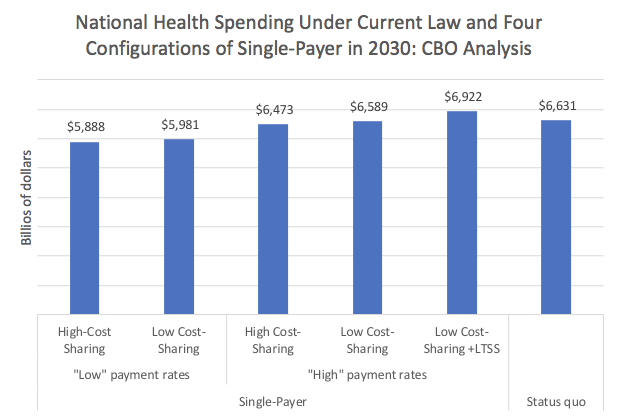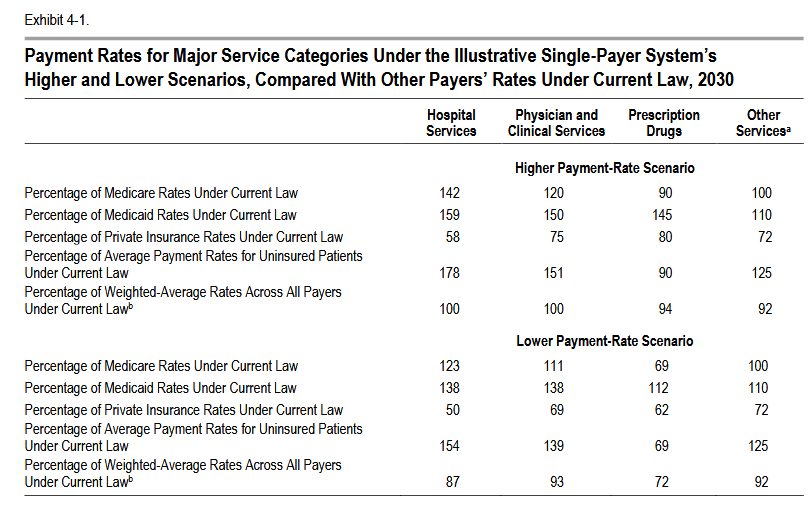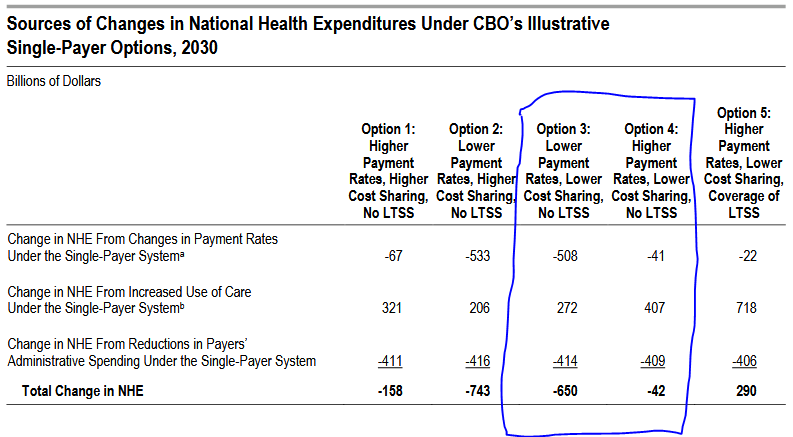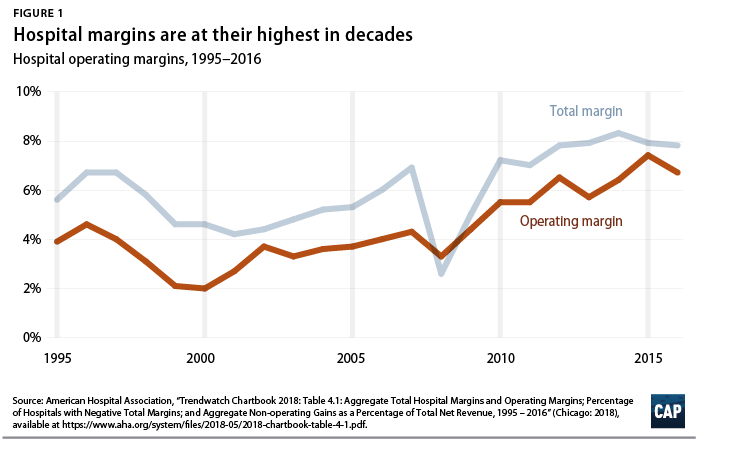there's a new CBO report about single-payer out. one thing concerns me: any proposed tradeoff between keeping avg reimbursement rates where they're at and shrinking total healthcare spending v. including long-term care and growing total spending
More specifically, I think there's a dangerous argument that will be made from this report: that we should keep reimbursement where it's at and delegate long-term care to Medicaid
this report contains two M4A models with no cost sharing: one where current weighted-average reimbursement rates grow at the same rate as would happen without any reform ("high payment rate") , and one where costs are controlled and rate growth is slowed ("low payment rate")
The low-payment model (Option 3) derives most of its savings from both lower payment rates and admin costs. The high-payment model (Option 4/5) cuts admin costs but keeps (net) reimbursement rates near where they are today.
Savings in Opt 3 come mostly from reduced hospital/pharma payments. Physician/clinical service rates are also reduced, but not as much. (It's peculiar that only in 3 does the CBO project aggressive pharma cost regulation [negotiation v. set rate growth based on pre-set prices]).
So the options we're given are: pay providers less and save a lot, pay providers about the same and save a little, or pay the same & include LTC and spend more overall. I think the correct model for M4A doesn't appear here: lower payment rates, no cost sharing, and LTC coverage
It's not acceptable to exclude long-term care from single payer. We already know what happens if you leave LTC to Medicaid: people will be shoved into nursing homes and/or lose their houses.
Meanwhile: hospitals operate at an 8% margin--up 33% since 1995. Even there, there's inequality -- about a quarter of hospitals lose money every year--usually hospitals serving poorer, sicker people. Big corporate hospitals fight tooth and nail to squeeze money out of payers.
(i know it's CAP lol)
The money's there, it's just that a lot of industries are clinging to it. Insurers and PBMs are addressed by the single-payer; pharma is reined in through price negotiation, DMEs jack up input costs, but hospitals are like 1/3 of total health spending.
(Behind all this is the shadow of big hospital corporations and the private equity firms which own them, which have spent a collective three and a half decades finding ways to invent new kinds of costs and consolidate facilities. PE is the secret final boss of healthcare reform)
There's an aux argument here -- that growing natl health expenditures is bad; that we need to save money. I'm kind of fine with increasing NHE if needed. We have all this money; we need to spend it _somewhere_. Healthcare is a good, productive place to put it.
here's the CBO report:
https://www.cbo.gov/system/files/2020-12/56811-Single-Payer.pdf
https://www.cbo.gov/system/files/2020-12/56811-Single-Payer.pdf
there's a lot more to chew on here -- like their argument that demand will increase faster than supply, what that means about healthcare needs in the US, and what background factors are driving all our utilization in the first place. but this was the first thing i thought of

 Read on Twitter
Read on Twitter





